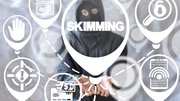News
Global Cash Access sees
Global Cash Access will pilot an ATM/slot machine hybrid called QuickPlay at a California casino this summer. While the idea is sure to appeal to casino owners, it may face regulatory challenges.
May 22, 2002
Reprinted with permission from ATM&Debit News, a weekly electronic newsletter based in Chicago. Subscriptions available at 212-631-9780 or go to thisWeb site.
Meshing ATMs with slot machines would appear to be the Holy Grail for casinos wanting to give gamblers easy access to their bank accounts. A leading ATM company plans soon to test such a product in California.
For casino ATM operators, attaching card swipes and PIN pads to slot machines has the potential to increase profitability. In addition to reducing cash-handling costs, the transactions would generate surcharge revenue.
However, state casino regulators and even some casino-industry supporters are highly skeptical of enabling gamblers such easy access to their checking accounts. Still, Santa Clara, Calif.-based Global Cash Access, the nation's largest casino ATM owner with some 1,000 ATMs, is forging ahead with its QuickPlay ATM slot machines.
"We think there is a lot of opportunity in that market," says Kirk Sanford, president of Global Cash Access, of which Greenwood Village, Colo.-based First Data Corp. is the majority owner. Global Cash Access will pilot 160 QuickPlay ATMs this summer at the Casino Pauma in Pauma Valley, Calif.
As with ATM transactions, gamblers would swipe their debit cards and enter their PINs at the slot machines. Once their bank authorizes the withdrawal, instead of dispensing cash, the machines would record playing units.
The transactions would be supported using a link from a wireless Hypercom Corp. point-of-sale terminal. The transaction-processing platform was built by the InfoNox Inc. ATM software company.
QuickPlay ATM is designed to replace millions of slot-machine transactions that currently use cash and/or token acceptors, says Sanford. Security to collect and process huge amounts of cash is a major cost to casinos, he notes.
"Casinos would love these types of transactions because they would have a tremendous cost savings from not having to move lots of money around," Sanford says. "I can tell you we have a long waiting list for this product."
No need to move
Enabling EFT transactions at slot machines, which account for about 70 percent of casino revenue, also would replace many ATM withdrawals at casinos. But, says Sanford, the plan would be to impose the same kind of surcharge currently imposed on casino ATMs, which is about $3.
The key benefit for users is they would not have to leave their seats to get more cash from an ATM. "A lot of people have their favorite slot machines, and they don't want to give up their seat," Sanford says.
But ATM slot machines may not see the light of day in many gambling states. Some, such as Iowa, ban ATMs from casino properties. Others, such as Illinois, ban ATMs from gambling areas.
Such regulations would apply to PIN-based transactions on slot machines as well, says a spokesperson for the Illinois Gaming Board, which regulates casinos in that state. The spokesperson says the board has the authority to regulate or ban such slot machines, and he predicts a lengthy process to gain approval in Illinois.
The controversy over ATM slot machines may not be worth the fight, notes Robert Swaim, an Illinois casino industry lobbyist. "I'm sure there would be a lot of concerns among regulators," he says. "I don't know if we want people draining their bank accounts at slot machines."
EFT-enabled slot machines would be a political hot potato in Missouri, says the spokesperson for the Missouri Gaming Commission, that state's casino regulatory body. "That would be a highly controversial issue here, and it would probably be addressed by the legislature," he says.
But Global Cash Access is prepared for regulatory concerns, Sanford notes. The company, which also is an EFT processor, would agree to set limits in much the same way banks set daily limits on cardholder ATM withdrawals, he says.
Some debit cards would be blocked entirely, such as those used by problem gamblers banned from casinos. Cards used for government electronic benefits transfer cash-assistance programs also could be blocked.
With about 600,000 slot machines in the U.S., the market for EFT-based machines could be huge, Sanford notes. "You are talking about millions, or even tens of millions, more transactions a year," he says.
 ChatGPT
ChatGPT Grok
Grok Perplexity
Perplexity Claude
Claude












